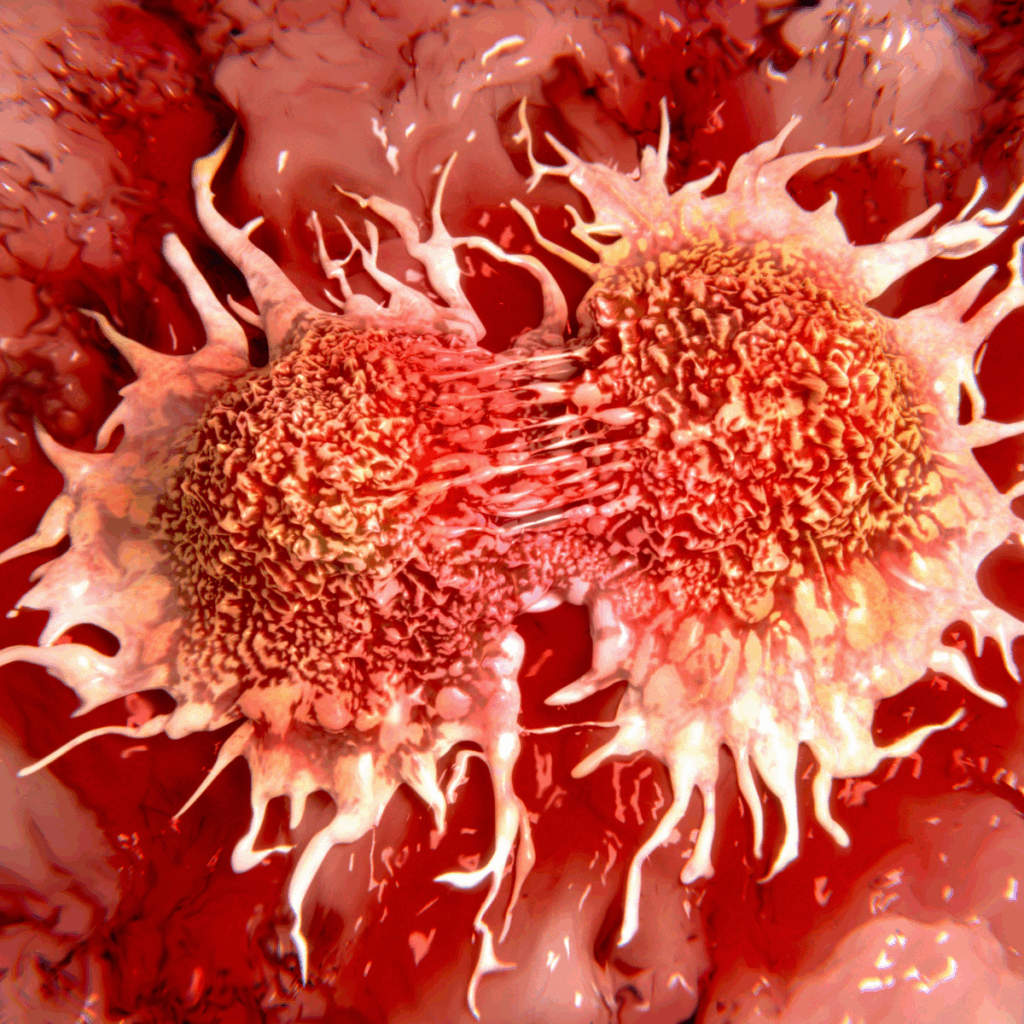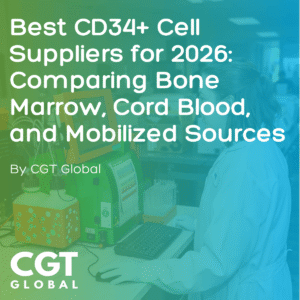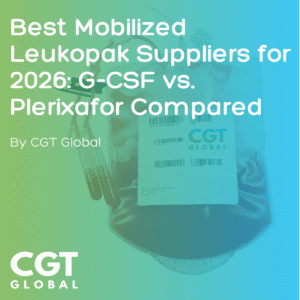Estimated reading time: 5 minutes
Table of contents
What makes Natural Killer (NK) Cells the Perfect Weapon Against Cancer?
Unlike the T cells of the adaptive immune system, innate natural killer (NK) cells protect the body against tumors without prior programming. They recognize and become activated by abnormal cells that lack or express key outer membrane markers characteristic of cancer. One way NK cells initiate malignant cell death is by unleashing granules of membrane penetrating perforins and caspase-activating, apoptosis-initiating granzymes. Their inherent anti-cancer abilities make NK cells a promising target for future cancer immunotherapies, especially for immunologically cold tumors.
Why are scientists excited about NK cell-based therapies?
While no NK cell-based therapies have been FDA approved, many scientists are testing the potential of NK cells to improve cancer outcomes with over 150+ active trials worldwide. Read on to learn about recent preclinical findings in cancer and NK cells.
In a study published in Nature in March 2025, scientists used artificial intelligence to identify genes linked to liver cancer recurrence. Because recurrent cancers had fewer NK cells, human derived NK cells were modified to delete and overexpress SPON2, an adhesion molecule important in many cancers. They demonstrated that this protein is crucial to NK’s anti-cancer function and how its expression informed patients’ prognosis. Researchers created a public algorithm that may be able to predict the recurrence of liver cancer and inform treatment strategies.
An article from 2023 in Cell describes how scientists sequenced the RNA of NK cells found in various types of solid tumors, healthy tumor adjacent tissues, and healthy donor NK cells. They found the transcriptomes of blood derived NK cells from healthy donors were very similar, compared to significant deviations in NK cells from tumors. They also found a group of NK cells associated with tumors with impaired anti-tumor capabilities that were associated with resistance to treatment and poor prognosis. Considering the emerging role of NK cells for future CAR therapies due to their lower risk profile, understanding what makes NK cells better at killing tumors is important for finding effective treatments for cancer.
NK cells are the body’s natural defense against cancer and cancer promoting senescent cells. . Researchers identified a gene (SMARCA4), that when inhibited, enhanced NK cells’ ability to eliminate ovarian cancer and senescent cells. This discovery could be used to develop new immunotherapies and senolytics to treat cancer and aging related diseases. These findings were published in Science Advances in January 2025.
These research projects were made possible using human derived NK cells. Are you curious to learn more about sourcing high quality NK cells for your next experiment?
Frequently Asked Questions About Natural Killer (NK) Cells and Cancer Research
CGT Global provides fresh and cryopreserved human NK cells, sourced from umbilical cord blood and peripheral blood from healthy donors consented with IRB approved forms and protocols through our FDA-registered collection facilities. Customization options include donor criteria, preservation methods, and isolation protocols.
Yes — we offer tailored donor selection to meet your research requirements, whether you’re studying cancer, immune aging, viral interactions, or preparing for allogeneic therapies.
NK cells are part of the innate immune system and kill abnormal cells without prior sensitization, while T cells (like CAR-T) require antigen-specific targeting. NK cells are less likely to attack host tissue and cause graft-versus-host disease because, unlike cancer cells, healthy cells lack the signals necessary for their activation. Unlike other allogeneic cell therapies, they do not need to be HLA matched to the donor. This is one reason NK cells are promising off-the-shelf therapy option.
Yes. Researchers are actively engineering CAR-NK cells due to their safety advantages over CAR-T cells. NK cells produce different cytokines that are less inflammatory. For this reason, a human trial (Liu, 2020) reported none of the 11 patients treated with HLA-mismatched anti-CD19 CAR-NK cells experienced common and potentially fatal cytokine release syndrome associated with CAR-T therapy. This NK-CAR trial also reported no GVHD or increased inflammation.
Yes, we can test for and provide information about Killer-cell Immunoglobulin-like Receptors (KIR).
NK cells are typically isolated from umbilical cord blood or peripheral blood mononuclear cells (PBMCs from Leukopaks) using magnetic bead separation. At CGT Global, we use standardized protocols to preserve cell viability and ensure high purity for research use.
Yes. RUO and GMP CD56+ NK cells are available. Ask our team to learn more.
We do. Our regional donor centers and coordinated logistics allow us to ship fresh or cryopreserved NK cells quickly—often within 24 hours of collection.
CGT Global: your partner in cell science
Contact us to learn more about what we offer and how we can customize your order to meet your experimental needs. We offer cell preservation techniques for studying DNA and RNA and leveraging the wealth of information this data can provide.
Citations
Spatial immune scoring system predicts hepatocellular carcinoma recurrence | Nature
A pan-cancer single-cell panorama of human natural killer cells – PubMed
SMARCA4 regulates the NK-mediated killing of senescent cells – PubMed
Use of CAR-Transduced Natural Killer Cells in CD19-Positive Lymphoid Tumors – PubMed







